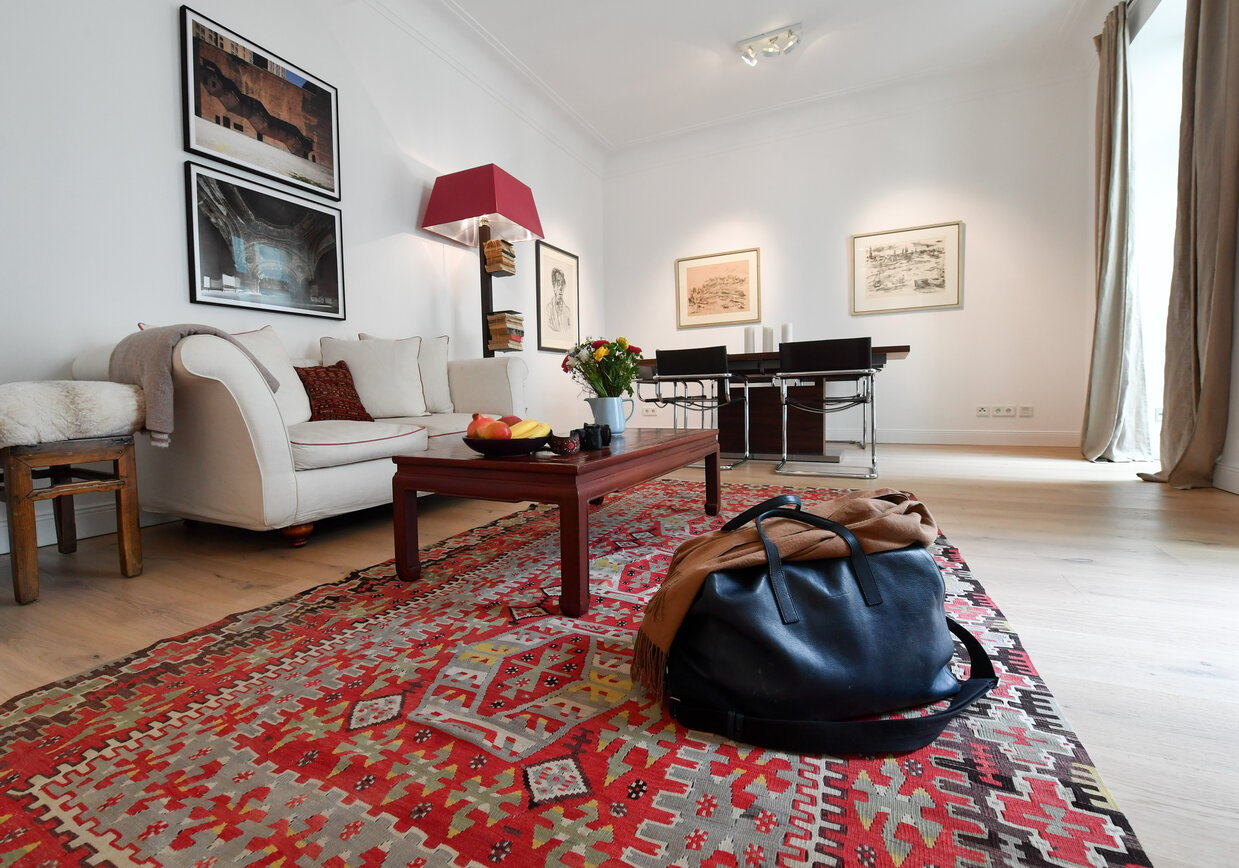The cost of an apartment in Berlin goes up by an average of 13 cents per square metre if there is an apartment being rented long-term over the holiday rental app Airbnb, the study by the German Institute for Economic Research found.
“This effect is mainly due to Airbnb listings that are sublet for more than 180 days, which have thus been taken out of the regular housing market,” co-author Tomaso Duso said.
The analysis was based around rental trends in the years 2016 and 2018.
The study found that some 10,000 apartments in Berlin were being offered on the platform in a typical month last year, making up 0.5 percent of the city's total housing stock.
Rental prices in Berlin have risen dramatically for the past decade, with city authorities taking several steps to try and control the increase.
While the main cause of the rise in rents is generally believed to be an unexpected increase in the city’s population, which has led to housing shortages, the city government has also blamed Airbnb for exacerbating the problem.
A law brought in in 2014 made it compulsory to register tourism lets with district authorities. The law was tightened again in 2018, with tough restrictions placed on the amount of time an apartment can be sublet for short term rents.
The authors of the study found that the 2014 law had been effective. “Depending on the district, the difference has been monthly savings of up to 38 euros for a 65 square meter apartment” said co-author Claus Michelsen, regarding the law restricting Airbnb use.
Big difference between districts
The study found significant differences between the impact of Airbnb flats in the different districts. Strangely, the fewer Airbnb apartments there were, the more impact they had on prices.
In the central district of Mitte, an Airbnb apartment in the vicinity led to a price rise of 8 cents per square metre. But in the less touristy district of Lichtenberg the price difference was 46 cents.
“If a large number of Airbnb accommodations are offered in a neighbourhood, the disadvantages for residents – for example, noise at night – could mean that regular apartments are less in demand,” said Duso.
“An alternative explanation could be that the demand for apartments in the centre is so great that the Airbnb effect is no longer decisive,” he added.
But the authors also came to the conclusion that Airbnb can help with more efficient use of housing, as long as it is restricted to short term rentals of one’s own apartment.
“Existing space can be used more efficiently if short-term vacant apartments can be rented to third parties,” said Duso.
Completely banning the app would have negative effects on the housing market, the study found.
READ MORE: Cities across Europe unite to demand tougher rules for Airbnb rentals



 Please whitelist us to continue reading.
Please whitelist us to continue reading.
Member comments